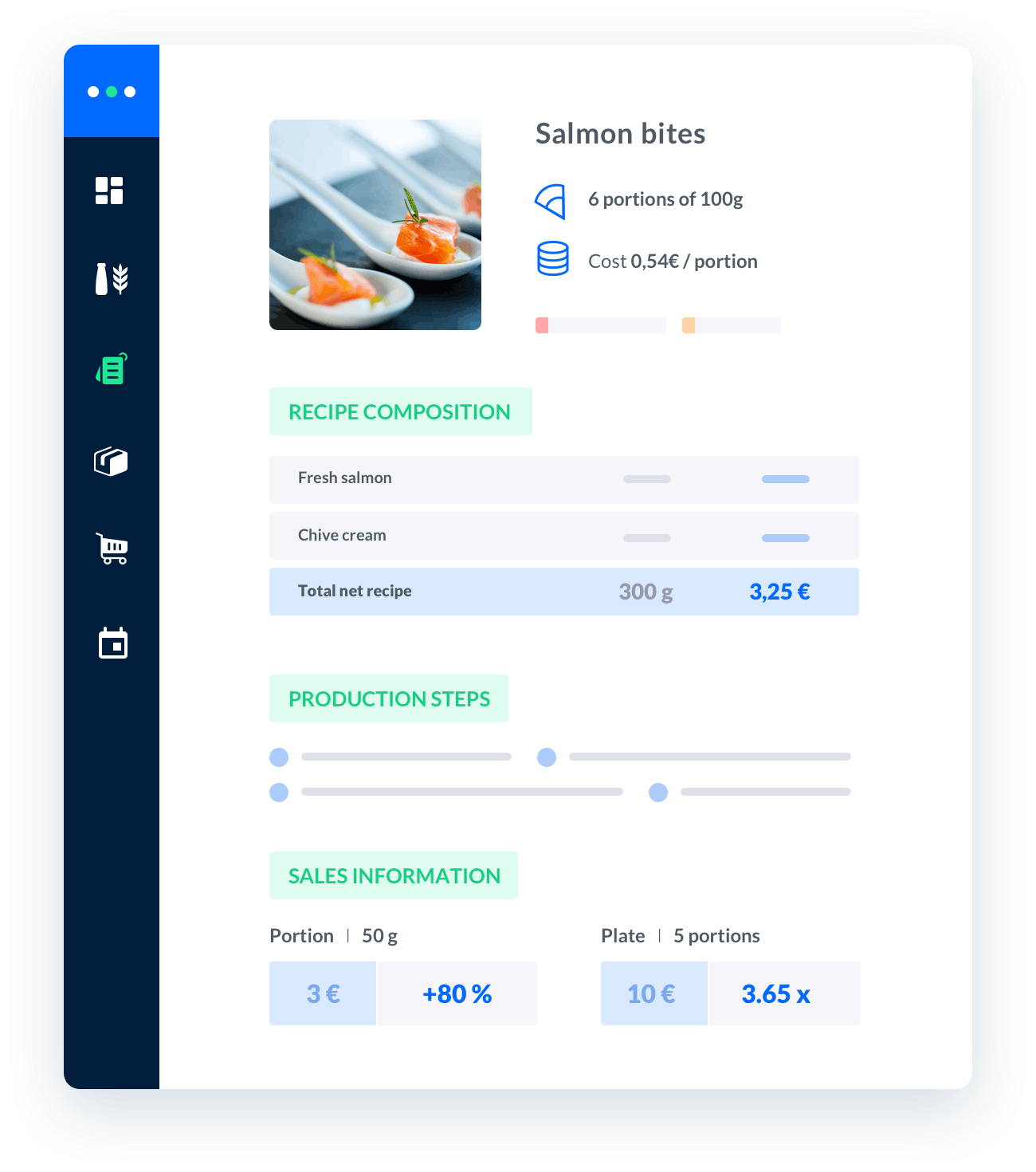food pricing calculator
In today's competitive catering industry, accurately determining food pricing is crucial for success.A food pricing calculator can be a valuable tool to help caterers calculate the costs associated with their menu items and set appropriate prices.

Melba: the food cost app to optimize the profitability of your restaurant
Discover how to optimize the profitability of your restaurant with melba

The ultimate guide to food cost restaurant
Learn more about the food cost basis and how to reduce your food cost percentage
In today's competitive catering industry, accurately determining food pricing is crucial for success. A food pricing calculator can be a valuable tool to help caterers calculate the costs associated with their menu items and set appropriate prices. Whether you are a small catering business or a large-scale operation, this comprehensive guide will provide you with essential insights on food pricing calculators and how to use them effectively.
Understanding Food Pricing Calculators
Food pricing calculators are online tools that enable caterers to determine the cost of individual menu items or entire catering events. These calculators consider various factors such as ingredient costs, labor expenses, overheads, and desired profit margins to generate accurate pricing recommendations.
Factors Considered in Food Pricing Calculators
When using a food pricing calculator, it is essential to understand the factors it takes into account. Here are some key elements typically considered by these calculators:
- Ingredient Costs: The cost of all the ingredients required to prepare a specific menu item.
- Labor Expenses: The wages and benefits of the catering staff involved in preparing and serving the food.
- Overheads: Fixed costs associated with running a catering business, such as rent, utilities, insurance, and marketing.
- Desired Profit Margins: The amount of profit you wish to earn from each menu item or catering event.
Benefits of Using a Food Pricing Calculator
Implementing a food pricing calculator can offer several benefits for catering professionals. Let's explore some of these advantages:
Accurate Cost Calculation
By using a food pricing calculator, you can accurately calculate the cost of each menu item, taking into account all the relevant expenses. This ensures that your pricing is based on real data and helps you avoid underpricing or overpricing your offerings.
Time Efficiency
Manual cost calculations can be time-consuming and prone to errors. Food pricing calculators streamline the process by automating the calculations, saving you valuable time that can be better spent on other aspects of your catering business.
Flexible Pricing Strategies
Food pricing calculators allow you to experiment with different pricing strategies. You can easily adjust factors such as profit margins or ingredient costs to see how they impact your overall pricing structure. This flexibility enables you to optimize your pricing strategy for profitability while remaining competitive in the market.
How to Use a Food Pricing Calculator
To make the most of a food pricing calculator, follow these steps:
Step 1: Gather Data
Collect all the necessary information, including ingredient costs, labor expenses, overheads, and desired profit margins. Ensure that you have accurate and up-to-date data to achieve reliable results.
Step 2: Choose a Reliable Food Pricing Calculator
Research and select a reputable food pricing calculator that aligns with your specific catering needs. Look for calculators that offer comprehensive features and user-friendly interfaces.
Step 3: Enter the Required Information
Input the gathered data into the calculator, following the prompts and instructions provided. Be diligent and accurate while entering the information to obtain precise results.
Step 4: Analyze the Results
Once you have entered all the necessary data, the food pricing calculator will generate pricing recommendations based on your inputs. Analyze the results carefully, considering your desired profit margins and the market competition.
Step 5: Adjust and Refine
Use the calculated prices as a starting point and evaluate their feasibility for your catering business. If required, make adjustments to ingredient costs, labor expenses, or profit margins to refine your pricing strategy further.
Best Practices for Food Pricing
While food pricing calculators provide valuable insights, it is essential to keep in mind some best practices to ensure optimal pricing for your catering business:
Research Competitors
Understand the pricing strategies of your competitors within the catering industry. Analyze their menus, pricing structures, and target customer segments. This knowledge will help you position your offerings competitively while maintaining profitability.
Consider Seasonality
Take into account the seasonality of ingredients and adjust your prices accordingly. Ingredients that are in high demand during specific seasons may be costlier, impacting your overall pricing. Stay updated on market trends to make informed decisions.
Regularly Review and Update Prices
Pricing is not a one-time task. Regularly review and update your prices based on changes in ingredient costs, labor expenses, and market dynamics. By staying proactive, you can ensure that your pricing remains relevant and profitable.
Analyze Profitability
Continuously monitor the profitability of your menu items and catering events. Identify any offerings that are not generating sufficient profit and assess whether adjustments are necessary. This evaluation will help you maintain a healthy bottom line.
In conclusion, food pricing calculators are valuable tools for catering professionals to determine accurate pricing for their menu items and events. By considering various factors and using these calculators strategically, you can optimize your pricing strategy, enhance profitability, and stay competitive in the dynamic catering industry.






